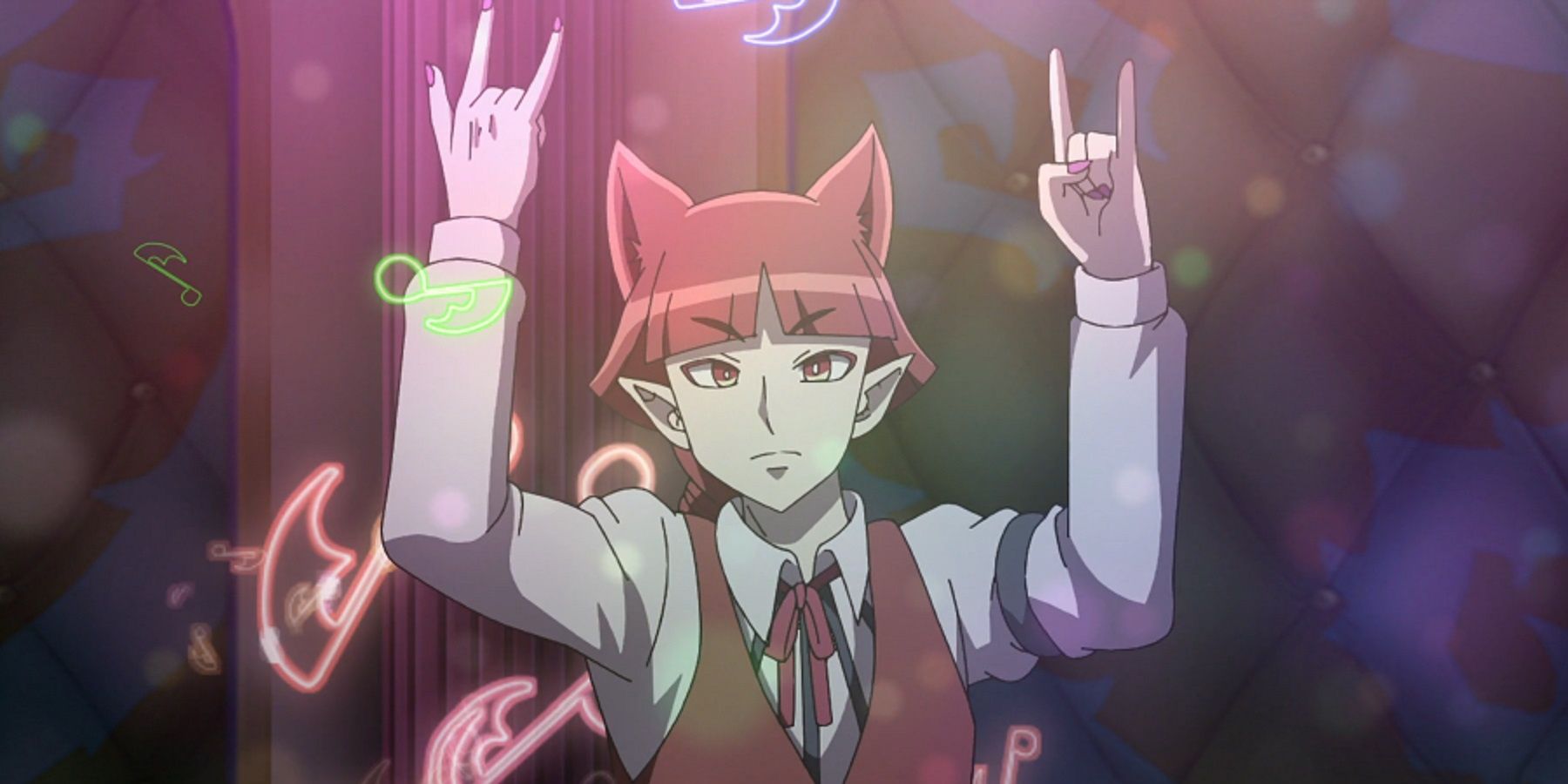Welcome to Demon School, Iruma-Kun! is a fantasy isekai anime series starring Iruma Suzuki, a kindhearted but hapless boy who found himself in the Netherworld, the realm of demons. Becoming Lord Sullivan's foster grandson, Iruma soon befriended not just his new grandfather, but other characters such as Asmodeus Alice and Opera the security agent.
A humble and polite demon, Opera is always ready to help Iruma or Lord Sullivan with any errand or endeavor in their everyday lives. Most notably, Opera clearly has a non-binary identity, being a they/their/them person. Iruma-Kun! handles this sort of identity better than many anime series today, and its trick is simple.
Opera's Paradoxical Representation Strategy In Iruma-Kun!
There are many approaches to representation and diversity in media, with some being more effective than others. Some series spotlight a character to emphasize whatever they represent, and the entire narrative might be affected for better or worse depending on how it's handled. Other stories, such as CW's Supergirl, practically base their entire premise on a major character's identity to some degree. The female hero in Supergirl is not only a comic book Kryptonian hero, but one whom female viewers, in particular, can identify with and root for in a modern context. However, the opposite approach can also be effective, such as with Opera.
Paradoxically, Welcome to Demon School, Iruma-Kun! celebrates Opera's NB identity by not openly celebrating it. The character is clearly NB in the original manga and the anime, based on appearance, voice and the lack of binary pronouns used when referring to Opera in the story. So the NB identity is concrete, but Iruma-Kun! does little more than that, a subtle approach that works well.
The narrative -- and by extension the characters -- see Opera's identity as ordinary and unremarkable, something that's simply understood and accepted as a matter of course. In that way, Iruma-Kun!'s plot leaps ahead to the finish line by representing an NB character whose identity has full acceptance, with no need for anyone else to make a fuss over it. No character feels the need to question Opera's NB identity or defend it, and thus it fits seamlessly and comfortably into the narrative.
Iruma-Kun! & Peanuts Skip To The Ending For Positive Representation
This has been done before in other works of fiction, including in the west. The late Charles Schulz, author of the original Peanuts, took the radical step of including a Black character and a tomboy in his comic strip -- an unusual and progressive move for the time -- and the other characters never really called it into question one way or another. Charlie Brown and the gang accepted Franklin and Patty for who they are, and acted as though such acceptance was utterly mundane and expected. To viewers it was radical, whether they liked it or not, but Charlie Brown and the others leaped ahead to full acceptance and normalization of these characters without making a fuss.
In that way, both Iruma-Kun! and Peanuts subtly but clearly encourage viewers to accept these identities as a matter of course, skipping over any debate. These stories represent the endgame of the battle for acceptance and recognition of marginalized groups. Some skeptics might say approaches like this are getting ahead of themselves or being overly optimistic by suggesting the battle for acceptance is somehow already over when, unfortunately, it is not. But on an individual basis, this subtle method can work, and for advocates of these identities, it can be refreshing and empowering to read such a story.
With the battle for representation already resolved in these stories, characters such as Opera, Franklin and Patty can be defined not by their battle for acceptance, but by anything and everything else instead. Since Opera's NB identity isn't a matter of discussion or debate in Iruma-Kun!, the narrative can focus on Opera's excellent manner of dress, combat skills -- displayed while fighting alongside Azazel Ameri -- professional status, personality quirks, and more.



